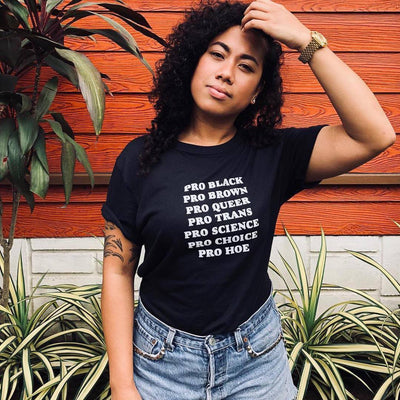Watching how Filipinos move about in the world always makes me think about our collective and individual identities, and the ways we shore up or tear down norms, traditions, rituals.
For folks in the diaspora, which includes millions of Filipinos around the world, it is infinitely easier to envision ourselves aligned with the new culture and communities we have become a part of. But there comes a time for many of us when we journey to define our identities, to reconcile the new with the old. What do we do with questions of our own country’s history, inquiries about our roots, and our distinct culture?
As the type of person who’s always turned to books for light and illumination, Filipino literature has always provided guidance for all our questions. And, when we’re lucky, the answers themselves.

Pia Cortez is a writer and blogger based in San Francisco. She’s also the founder of Libromance, a blog which features books reviews and literary offerings with a queer Filipina immigrant perspective. Photo by Pia Cortez.
Here are 6 books to read to reconnect with your Filipino roots, a combination of fiction and nonfiction guaranteed to make the connection(s):
America is in the Heart by Carlos Bulosan
America is in the Heart is presented as the autobiography of Carlos Bulosan, a Filipino peasant migrant from the Philippines to America. While many facts in the book are refuted, it nonetheless stands as a testimony and a witness to the early experiences of Filipinos in the country.

‘America is Not the Heart’ by Elaine Castillo is a novel that speaks to the Filipino experience during martial law in the Philippines. Photo by Pia Cortez.
America is Not the Heart by Elaine Castillo
The debut novel of Bay Area Pinay Elaine Castillo speaks to the Filipino experience during the time of martial law, centered around the lives of Ilokanos who end up migrating to the Bay Area in California. Notable for the way it tackles immigration and queerness, America is Not the Heart is one of 2018’s best reads.
In the Country: Stories by Mia Alvar
Mia Alvar’s stories in this collection offer an array of voices of Filipinos in the homeland and in the diaspora, illuminating the breadth and depth of the struggle of Filipino families. From balikbayans to workers in the Middle East, Alvar dives into the complex emotionality of what it means to be Filipino in our contemporary times.
Lola’s House by M. Evelina Galang
Lola’s House is a compendium of M. Evelina Galang’s work around “Filipino comfort women,” women who were raped and abused by Japanese soldiers during the Second World War. In the book, Galang weaves and connects the narratives of these women who are now lolas (grandmother in Tagalog) still seeking justice and retribution to this day.

In The Country: Stories by Mia Alvar dives into the complex emotionality of what it means to be Filipino. Photo by Pia Cortez.
Dogeaters by Jessica Hagedorn
Dogeaters by Jessica Hagedorn is a novel that explores the lives of Filipinos from a few families during the martial law era in the country. Interwoven are narratives that reveal the class tensions inherent in Philippine society, from the poorest sector up to the upper echelons in Manila. It also reveals how political power situates itself in the country, embodied by figures in the government and in leftist movements.
Philippine Society and Revolution by Amado Guerrero
Amado Guerrero’s book is a comprehensive read on the history of the Philippines, providing historical and material context from the Spanish colonization up until the Marcos’s dictatorship. While not an easy read, it provides an overwhelmingly astute analysis and picture of the conditions of Filipinos, as well as the different liberation movements that have continued to inspire many.

Filipino literature can provide answers to our questions about our country’s history, inquiries about our roots, and our distinct culture. Photo by Pia Cortez.
Some of the books in this list have been published decades ago, while some have been published within the last couple of years. What I appreciate most about them is that distinctive Filipino voice, the one that transcends time and borders, that voice that somehow manages to speak about the struggles of our people while still being able to humor the reader with a literary plate of pancit.
It is also an exciting time for Filipino literature as more voices are being published, expanding the landscape for diasporic literature to include provincial narratives.
Have you read any of these books? What would you add to the list?
Pia Cortez

Pia Cortez is a diasporic, digital nomad currently based in the Philippines. Having grown up in Pampanga and then in the Bay Area in her teens, she is back freediving, writing, eating and traveling her way through the homeland (with a mask & face shield on). She is an editor for SheReads.com and Hella Pinay, and her work has appeared on New Life Quarterly, Lambda Literary, Positively Filipino, Hella Pinay, Inquirer.net, SF Examiner and others. Follow her journey on Instagram at @_piacortez



This list is dope Pia! Thank you for sharing. I’ve got many of these on my book shopping list! ✊🏽✊🏽✊🏽
Leave a comment